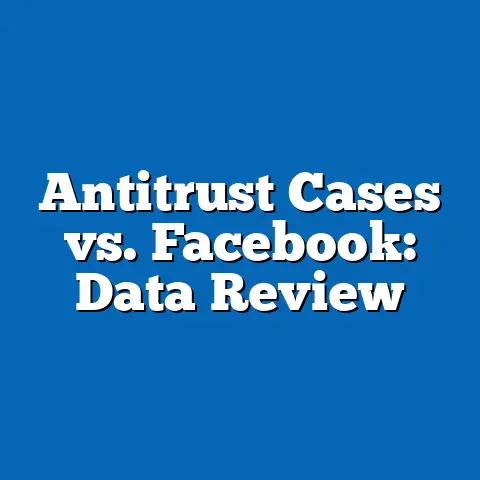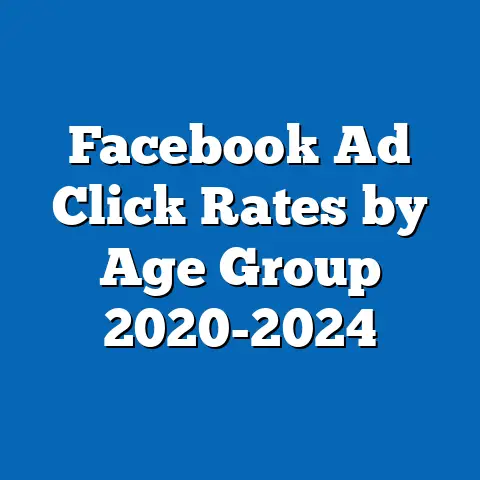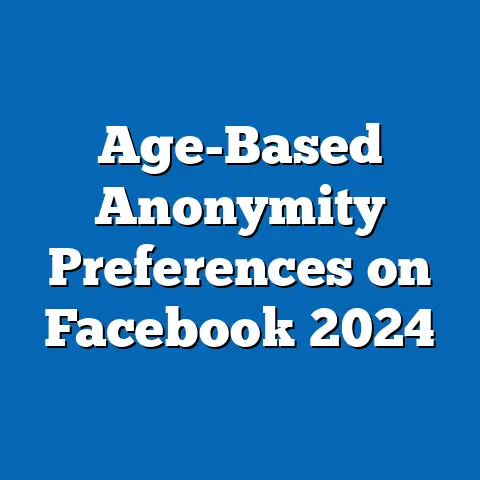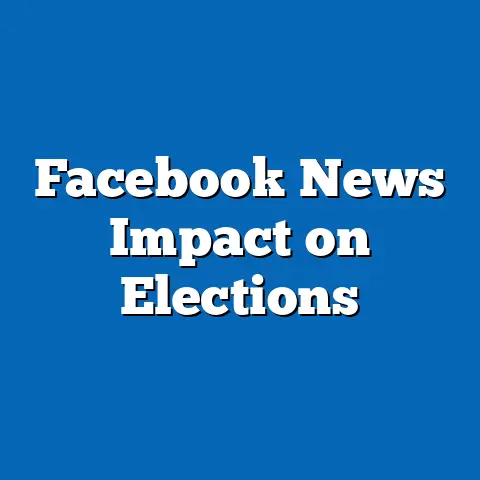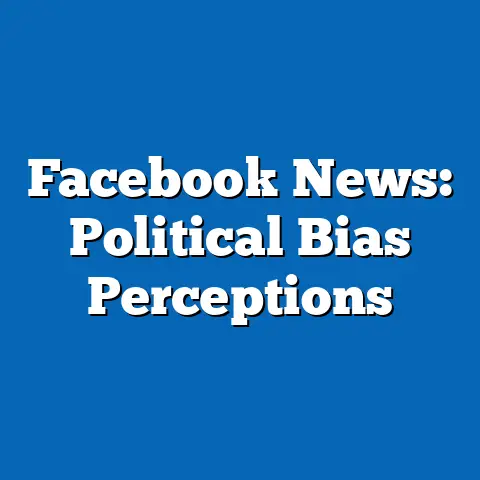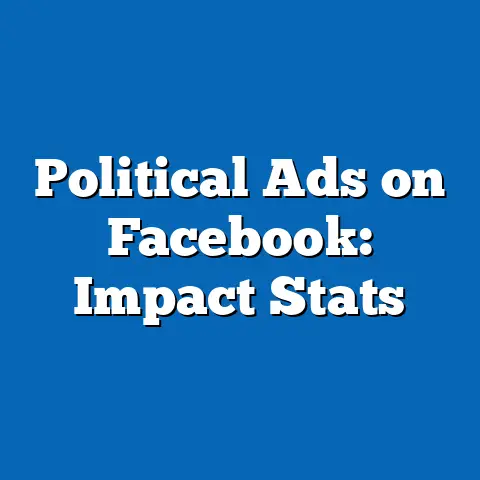Facebook Political Ad Targeting and Voter Influence
Imagine a world where a single click can sway an election, where a tailored message on your social media feed can subtly shift your political perspective without you even realizing it.
This is no longer the realm of science fiction but the reality of modern political campaigning through platforms like Facebook, where political ad targeting has become a powerful tool for influencing voter behavior.
As one of the largest social media platforms with over 2.9 billion monthly active users as of 2023, Facebook has transformed into a digital battleground where political actors wield data-driven strategies to shape public opinion.
Political ad targeting on Facebook refers to the practice of using the platform’s vast data collection capabilities to deliver customized advertisements to specific user demographics based on their interests, behaviors, location, and even psychological profiles.
This microtargeting, enabled by sophisticated algorithms, allows campaigns to reach voters with unprecedented precision, raising critical questions about its impact on democratic processes.
How did we arrive at this juncture, and what are the societal implications of such influence in an era of increasing polarization and misinformation?
Defining Characteristics of Facebook Political Ad Targeting
At its core, Facebook political ad targeting leverages the platform’s unparalleled data infrastructure to deliver hyper-personalized content to users.
Unlike traditional political advertising—think television or radio spots that cast a wide net—Facebook’s approach is rooted in microtargeting, where ads are tailored to individuals based on a constellation of data points.
These include demographic information (age, gender, location), behavioral data (likes, shares, browsing history), and even inferred psychographic traits (values, personality, and lifestyle preferences).
A defining feature of this system is its reliance on machine learning algorithms that continuously refine ad delivery based on user engagement.
For instance, if a user interacts with content related to environmental issues, the algorithm may prioritize political ads from candidates advocating for green policies.
This feedback loop creates a highly dynamic advertising ecosystem where messages are not just broadcast but iteratively optimized for impact.
Another critical characteristic is the opacity of the process.
While Facebook provides tools like the Ad Library for transparency, the inner workings of its targeting algorithms remain largely a black box to users and regulators alike.
This lack of visibility raises concerns about accountability, as political actors can exploit these tools to deliver divisive or misleading content with little oversight.
Combined with the platform’s global reach, these characteristics make Facebook a uniquely powerful player in shaping political narratives.
Historical Context: The Rise of Digital Campaigning
To understand the current landscape of political ad targeting on Facebook, we must rewind to the early 2000s when social media began reshaping communication.
Launched in 2004, Facebook initially served as a platform for personal connections among college students.
However, by 2008, it had become a pivotal tool for political campaigns, most notably during Barack Obama’s presidential run in the United States, which famously harnessed social media to mobilize young voters and raise funds.
The real turning point came with the advent of Facebook’s advertising platform, introduced in 2007 and refined over the subsequent decade.
By 2012, campaigns could purchase ads with basic targeting options, but the sophistication of these tools exploded with the integration of data analytics and partnerships with third-party firms like Cambridge Analytica.
The 2016 U.S.
presidential election and the Brexit referendum in the UK marked a watershed moment, as allegations surfaced that Cambridge Analytica had misused Facebook user data to create psychological profiles for voter manipulation.
These events were catalyzed by broader technological trends, such as the proliferation of smartphones and the rise of big data analytics.
By 2016, over 80% of American adults owned a smartphone, according to Pew Research, providing campaigns with a direct line to voters’ personal devices.
Simultaneously, Facebook’s business model—reliant on advertising revenue— incentivized the collection of ever-more granular user data, creating a perfect storm for political exploitation.
Significant historical events like the 2016 election scandals brought public and regulatory scrutiny to the forefront.
Reports revealed that Russian operatives had used Facebook ads to sow discord among U.S.
voters, with the Internet Research Agency purchasing over 3,500 ads reaching millions of users, as documented by the U.S.
Senate Intelligence Committee.
These revelations underscored the platform’s vulnerability to foreign interference and amplified calls for reform, setting the stage for ongoing debates about digital democracy.
Technological Foundations: How Facebook’s Algorithms Shape Influence
The technological underpinnings of Facebook’s political ad targeting are rooted in its ability to collect and analyze vast amounts of user data.
Every interaction on the platform—likes, comments, shares, and even time spent viewing content—feeds into a user profile that advertisers can tap into.
As of 2020, Facebook offered over 1,300 targeting options, ranging from political affiliation to niche interests, according to a study by ProPublica.
This granular targeting is powered by machine learning models that predict user behavior and optimize ad delivery.
For example, a campaign promoting a conservative candidate might target users who have engaged with content from right-leaning pages, live in swing states, and exhibit traits associated with traditional values.
The result is a highly personalized message that feels relevant to the individual, increasing the likelihood of engagement or persuasion.
Moreover, the platform’s “lookalike audiences” feature allows advertisers to reach users who resemble their existing supporters, expanding their influence with algorithmic precision.
While this technology is not inherently malicious, its potential for misuse is evident in cases where ads perpetuate misinformation or exploit emotional triggers.
A 2019 study by the University of Southern California found that emotionally charged political ads on Facebook were 20% more likely to be shared, highlighting the platform’s role in amplifying divisive content.
Economic Incentives: The Business of Political Ads
Economically, political advertising on Facebook represents a lucrative revenue stream for the platform.
In the 2020 U.S.
election cycle alone, political ad spending on Facebook and Instagram exceeded $1.3 billion, according to the company’s transparency reports.
This financial incentive drives the platform to maintain and enhance its targeting capabilities, even amidst public criticism.
For political campaigns, Facebook offers a cost-effective alternative to traditional media.
Where a national TV ad might cost millions, a targeted Facebook campaign can reach specific voter segments for a fraction of the price.
This democratization of advertising has allowed smaller campaigns and fringe groups to compete with established players, but it also opens the door to bad actors who can affordably spread disinformation.
The economic model also creates a feedback loop where user engagement—whether through outrage or agreement—drives ad revenue.
This dynamic prioritizes sensational content over factual accuracy, as evidenced by a 2021 study from NYU’s Center for Social Media and Politics, which found that false political stories on Facebook generated six times more engagement than true ones.
Thus, the economic structure of digital advertising inherently shapes the type of political discourse that flourishes online.
Social and Cultural Impacts: Polarization and Echo Chambers
Socially, the impact of Facebook’s political ad targeting is most visible in the deepening of political polarization.
By delivering tailored content, the platform often reinforces existing beliefs, creating echo chambers where users are rarely exposed to opposing viewpoints.
A 2018 study by the American Journal of Political Science found that social media users were 30% less likely to encounter cross-partisan content compared to traditional media consumers.
This phenomenon is exacerbated by the platform’s algorithmic bias toward engagement, which favors content that elicits strong emotional responses.
Political ads exploiting fear or anger—such as those targeting immigration or economic insecurity—can deepen societal divides.
For instance, during the 2016 U.S.
election, ads targeting African American voters with messages discouraging turnout were later linked to foreign interference campaigns, as reported by the Mueller investigation.
Culturally, the normalization of microtargeted political messaging has shifted how we perceive political discourse.
Voters are increasingly treated as data points to be optimized rather than citizens to be engaged in substantive debate.
This transactional approach risks eroding the shared cultural understanding necessary for democratic cohesion, replacing it with fragmented narratives tailored to individual biases.
Societal Implications: Democracy in the Digital Age
The societal implications of Facebook’s political ad targeting are profound, touching on core democratic principles like free will, transparency, and fairness.
At its best, targeted advertising can empower campaigns to connect with underrepresented voters and raise awareness about critical issues.
At its worst, it can undermine the integrity of elections through manipulation and misinformation.
One major concern is the erosion of voter autonomy.
When ads are crafted to exploit psychological vulnerabilities—such as fear of economic decline or distrust in institutions—voters may feel influenced in ways they cannot fully discern.
A 2020 survey by the Pew Research Center found that 64% of Americans believe social media platforms have too much influence over political decisions, reflecting widespread unease about digital persuasion.
Privacy is another critical issue.
Facebook’s data collection practices, which fuel its targeting capabilities, often operate with limited user consent or understanding.
The Cambridge Analytica scandal revealed how data from millions of users could be weaponized without their knowledge, prompting global calls for stricter data protection laws like the EU’s General Data Protection Regulation (GDPR).
Yet, enforcement remains inconsistent, and many users remain unaware of how their information is used.
The potential for foreign interference further complicates the societal impact.
As seen in 2016, state-sponsored actors can exploit Facebook’s tools to influence elections in other countries, challenging national sovereignty.
While Facebook has since implemented measures like ad transparency and restrictions on foreign political ads, a 2022 report by the Atlantic Council noted that such efforts often lag behind evolving tactics by malicious actors.
Regulatory and Ethical Challenges: Balancing Innovation and Accountability
The regulatory landscape surrounding Facebook’s political ad targeting is a patchwork of incomplete solutions and jurisdictional challenges.
In the United States, the Federal Election Commission (FEC) oversees political advertising but lacks clear authority over digital platforms, leading to a regulatory gray area.
The Honest Ads Act, proposed in 2017, aimed to mandate transparency for online political ads but has yet to pass Congress.
Globally, the European Union has taken a more proactive stance with initiatives like the Digital Services Act (DSA), which imposes stricter rules on content moderation and ad transparency for platforms like Facebook.
However, enforcement varies across member states, and non-EU countries often lack comparable frameworks.
This inconsistency creates a whack-a-mole problem where bad actors can exploit regulatory gaps.
Ethically, the use of psychological profiling in political ads raises questions about manipulation versus persuasion.
Is it acceptable for campaigns to target voters based on inferred traits like anxiety or authoritarian tendencies?
Scholars like Shoshana Zuboff, author of The Age of Surveillance Capitalism, argue that such practices commodify human behavior, reducing democratic participation to a series of algorithmic transactions.
Facebook itself has grappled with these challenges, introducing policies like banning political ads in the week before U.S.
elections (as seen in 2020).
Yet, critics argue these measures are reactive and insufficient.
A 2021 internal report leaked to The Wall Street Journal revealed that Facebook executives were aware of the platform’s role in spreading harmful content but often prioritized growth over mitigation, highlighting the tension between profit and public good.
Comparative Analysis: Digital vs. Traditional Political Advertising
Comparing Facebook’s political ad targeting to traditional methods reveals both opportunities and risks.
Traditional advertising, such as TV or print, operates on a mass communication model with limited personalization.
While this approach ensures broader exposure to diverse viewpoints, it lacks the precision and cost-efficiency of digital targeting.
Conversely, Facebook’s microtargeting allows campaigns to address niche issues relevant to specific communities, potentially increasing voter engagement.
For example, a local campaign might target rural voters with ads about agricultural policy, a feat impossible with a national TV spot.
However, this precision comes at the cost of transparency and the risk of exclusion, as some voters may never see certain messages due to algorithmic filtering.
Another key difference is accountability.
Traditional ads are subject to clearer regulatory oversight and public scrutiny, whereas digital ads can spread rapidly with little traceability.
A misleading TV ad can be challenged through broadcast standards, but a viral Facebook ad may influence thousands before fact-checkers intervene.
This disparity underscores the urgent need for updated frameworks to govern digital campaigning.
Nuances and Diversity in Impact
It’s important to acknowledge that the impact of Facebook’s political ad targeting is not uniform across populations or contexts.
Younger users, who often rely on social media as a primary news source, may be more susceptible to digital influence, according to a 2022 study by the Reuters Institute.
In contrast, older users might be more vulnerable to misinformation due to lower digital literacy, as noted in a 2019 report from Princeton University.
Geographic and cultural differences also play a role.
In countries with robust democratic institutions, targeted ads might complement existing civic engagement.
However, in regions with weaker governance or restricted media, such ads can disproportionately shape narratives, as seen in the 2019 Indian elections where WhatsApp (owned by Meta) and Facebook were used to spread divisive content, per a report by Human Rights Watch.
Socioeconomic status further complicates the picture.
Wealthier users with access to diverse information sources may be less swayed by targeted ads, while marginalized communities—often targeted with suppression tactics—face greater risks of disenfranchisement.
This diversity in impact highlights the need for tailored policy responses rather than one-size-fits-all solutions.
Implications for Society, Culture, and the Workplace
In the workplace, the implications are subtler but significant.
Employees increasingly encounter political content through social media, which can influence workplace dynamics, especially in politically charged environments.
A 2020 survey by the Society for Human Resource Management found that 42% of U.S.
workers reported political disagreements stemming from social media exposure, suggesting that digital ad influence spills into professional spaces.
For society at large, the erosion of trust in institutions is a critical concern.
When voters perceive elections as swayed by unseen digital forces, confidence in democratic processes diminishes.
A 2021 Edelman Trust Barometer report found that only 57% of global respondents trust social media as a source of political information, down from 66% in 2016, reflecting growing skepticism about platforms like Facebook.
Forward-Looking Insights: Navigating an Uncertain Future
Looking ahead, the trajectory of Facebook’s political ad targeting and its impact on voter influence remains uncertain, shaped by evolving technology, policy, and public awareness.
Advances in artificial intelligence could further refine targeting capabilities, potentially enabling even more precise psychological manipulation.
At the same time, innovations like decentralized social media or blockchain-based ad transparency might offer alternatives to centralized platforms like Facebook.
Regulatory efforts will likely intensify, with pressure mounting for global standards on digital political advertising.
However, achieving consensus across diverse political systems is a daunting task, and enforcement will remain a challenge.
Public education on digital literacy could serve as a complementary solution, empowering users to critically evaluate the content they encounter.
Ultimately, the future hinges on balancing technological innovation with democratic accountability.
While platforms like Facebook have the potential to enhance political participation, their unchecked influence risks undermining the very systems they claim to support.
As society grapples with these tensions, ongoing research and dialogue will be crucial to ensuring that digital tools serve the public good rather than private interests.
Conclusion
Facebook’s political ad targeting represents a double-edged sword in the realm of voter influence and digital democracy.
Its ability to connect campaigns with voters through personalized messaging is a powerful innovation, yet it comes with significant risks of manipulation, polarization, and privacy erosion.
By tracing its historical evolution, technological foundations, and societal impacts, this analysis underscores the urgent need for transparency, regulation, and ethical reflection.
As we stand at the intersection of technology and democracy, the stakes could not be higher.
The choices made by platforms, policymakers, and citizens in the coming years will shape whether digital tools like Facebook strengthen or weaken the democratic process.
While the path forward is fraught with uncertainty, one thing is clear: understanding and addressing the complexities of political ad targeting is essential to safeguarding the integrity of our collective future.

